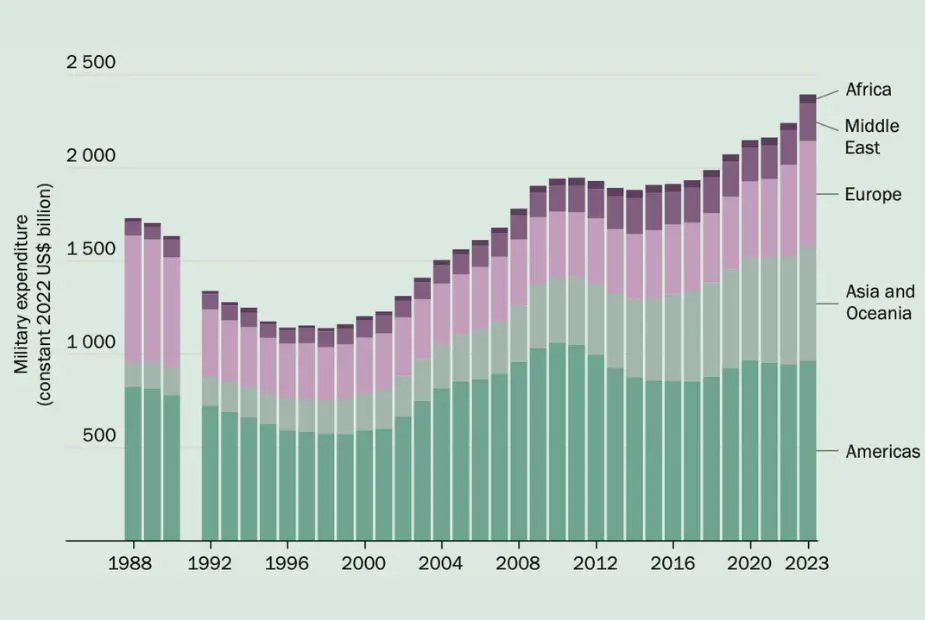Global Defense Spending Reaches an Unprecedented Level of $2443 Billion
According to the Stockholm International Peace Research Institute (SIPRI) report on global military spending trends in 2023, released on April 22, 2024, global military expenditures reached an unprecedented level of $2443 billion, marking a 6.8% increase from the previous year, the sharpest rise since 2009. While this increase can partly be attributed to Russia's invasion of Ukraine, the report highlights a universal uptrend in defense spending across all regions, driven by heightened tensions in Asia and instability in the Middle East.
Follow Army Recognition on Google News at this link

World military expenditure by region between 1988 and 2023 (Picture source: SIPRI)
In 2023, the United States led global military spending with a total of $916 billion, followed by China and Russia, with significant increases also recorded by other major economies. This rise reflects a broader trend where countries prioritize military capabilities in response to an increasingly volatile global security landscape. According to Nan Tian, a senior researcher at SIPRI, this trend could further feed a spiral of action and reaction in global military engagements.
Russia's military spending significantly increased by 24% to approximately $109 billion, while Ukraine, amid ongoing conflict and receiving substantial military aid, notably raised its defense budget by 51% to $64.8 billion. This made Ukraine the eighth largest military spender globally, with spending now nearly 59% of Russia's.
NATO members collectively accounted for $1341 billion, or 55% of total global military expenditures, with European members notably increasing their share to the highest level in a decade. The context of the war in Ukraine has fundamentally altered the security landscape for Europe, driving military spending higher as countries reassess their defense needs.
In Asia, the continuous increase in China's military spending significantly influenced its neighbors. Japan and Taiwan notably increased their military budgets by 11% each, partly in response to China's growing military capabilities. These regional dynamics highlight the broader implications of China's military strategies on its neighboring countries.
The Middle East also saw a significant increase in military spending, led by Saudi Arabia and Israel, the latter of which raised its budget by 24% following military operations in Gaza. These expenditures in the region reflect ongoing changes in political alliances and the persistent instability that characterizes much of the area.
In Central America and the Caribbean, the fight against organized crime has led to an increased military role, with countries like the Dominican Republic and Mexico boosting their military expenditures in response to growing security challenges.
Defense News April 2024
- Hits: 3997
















